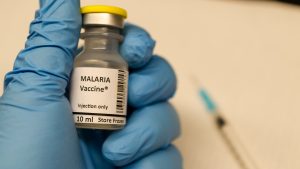
Health Europa speaks to Simon Bland, CEO of GLIDE, about the institution’s efforts to eliminate preventable infectious diseases of poverty and why a collective, global approach is vital in this task.
The COVID-19 pandemic has shown how easily and quickly infectious diseases can spread, but equally, it has encouraged nations to pull together and work collaboratively to overcome global healthcare challenges. The Global Institute for Disease Elimination (GLIDE) is a global health institute based in Abu Dhabi whose remit includes accelerating progress and implementing strategies for the elimination of preventable infectious diseases. In addition to polio, lymphatic filariasis and onchocerciasis, the team is also tackling one of the world’s oldest diseases, malaria. Though an increasing number of countries have achieved malaria-free status, the disease continues to hold a huge social, clinical, and economic burden in low- and middle-income countries. To find out more about GLIDE’s efforts in disease elimination and the impact of COVID-19 and antimicrobial resistance, Health Europa spoke to the organisation’s CEO, Simon Bland.
How did GLIDE come to be founded and what are your key goals as an organisation?
The Global Institute for Disease Elimination (GLIDE) was officially launched in November 2019 at the Reaching the Last Mile Forum held in Abu Dhabi. Logistically, GLIDE is extremely well placed to connect to Europe, Asia, and the rest of the world. Abu Dhabi is an incredible place, especially when you consider how it has transformed in the last sixty years. The ambition and the ability of this country to move forward quickly is huge. Sheikh Zayed, who founded this nation, developed a very close relationship with former President Jimmy Carter who had been brought up in Plains, Georgia and was surrounded by a lot of poverty. Dealing with suffering was clearly close to both of these people and they found common spirit in tackling guinea worm disease and have been working very hard towards the eradication of that disease. Sheikh Mohamed bin Zayed, the Crown Prince of Abu Dhabi has followed in his father’s footsteps, becoming a strong philanthropist for global health and investing heavily in malaria and polio. On the back of those long partnerships and investments, there was a desire to create an institute here which felt a little more homegrown and could take forward some of those initiatives and build energy, capacity, and excitement here in Abu Dhabi. It aligns with our saying whereby we are based in Abu Dhabi, but we are actually rooted in Abu Dhabi.
The overarching focus is on reducing suffering and thinking about the particular challenges of Last Mile Health – the last communities, the most marginalised communities, and the poorest communities.
GLIDE has a vision of a world free of preventable infectious diseases of poverty, and that is achievable. If we think about the elimination of infectious diseases of poverty, such as neglected tropical diseases, malaria and polio, we have the wherewithal to get there, it is within our grasp. Our key aim is therefore to accelerate progress and deepen understanding through the development and implementation of elimination strategies. At the moment, we are concentrating on four diseases – malaria, polio, river blindness (onchocerciasis) and lymphatic filariasis – and considering both how the burden can be managed but also how it can be controlled and what the related specifics are with regard to elimination. Similarly, we are always looking to new ways of thinking and new ways of working, new tools, and innovations, because what brought us here will not necessarily get us to the end point.
Focusing on malaria, what progress has been made in recent years in terms of disease prevention strategies and treatment innovations?
Malaria is an ancient disease that is thought to have killed half of the people who have ever lived on this planet. Over the last couple of decades great progress was made in reducing the number of cases and associated deaths. Equally, there have been many attempts of elimination, some of which have succeeded and others that have failed, global eradication has thus far been elusive. In terms of shrinking the map for malaria the progress is good; many countries have been certified as malaria free in the last 20 years including the UAE in 2007, China in 2021 and Paraguay in 2018, which, given it is a region of large tropical wetlands is an incredible result.

New tools including insecticide treated bed nets, indoor residual spraying, rapid diagnostic tests and artemisinin-based combination therapies have really helped drive down the malaria burden. However, progress was stalling, and it was stalling before COVID came along. As a result of the pandemic, we have seen a few models detailing various predictions for malaria, the worst-case scenario being that COVID-19 would double the mortality rate and set malaria progress back 20 years. Though it has not exacerbated the situation to this extent, there has been an additional 70,000 deaths last year due to COVID. It is interesting because symptoms for the earlier variants of COVID-19 are not dissimilar to those seen in malaria. Yet, the advice could not be more different. People with malaria are encouraged to visit their nearest clinic as soon as possible, but for suspected COVID, you must stay at home.
There are some new tools emerging to treat malaria including the RTS,S and R21 vaccines, both of which are promising, but not a panacea. Ivermectin, which is a treatment we use for neglected diseases including onchocerciasis and lymphatic filariasis also kills mosquitoes. So, if people are taking ivermectin and the mosquito bites it has an impact on mortality, there is a lot of research going on to investigate this further.
Tackling issues of resistance is a huge challenge. We used to use quinine and chloroquine as treatments but we have seen the progression to artemisinin. The AMR challenge is present across many of the areas we are working on, certainly for malaria.

What lessons can be taken from countries certified as malaria free to help reduce the burden elsewhere? Can you highlight some of the key barriers that are slowing down the progress of disease elimination?
Like many things, it comes down to commitment and persistence. If we consider HIV, we saw the greatest progress in tackling HIV when there was strong, high-level leadership and commitment behind it. It is the same with malaria, you need political commitment and persistence to succeed because you cannot simply eliminate malaria in a year, it takes decades.
The willingness to apply the tools, to learn lessons, to adapt and implement well thought out and adaptable strategies are common features in many of the countries that have eradicated the disease. We are going to continue to work with countries and help them in any way we can, to maintain that focus.
The key barriers we often see which can slow down progress in eliminating preventable infectious diseases are cost, political capital, and the challenge of resistance, we are constantly trying to stay ahead of that. There is a saying, ‘you can lose a decade in a season’ so you can make progress across 10 years, but if something goes wrong in a short period of time – for instance if there are insufficient amounts of bed nets, or challenges that arise due to the start of the rainy season – you can lose it all. This challenge of resurgence or recrudescence is huge.
Diseases do not carry passports so while one country may have eliminated a disease it can create a whole host of challenges in a neighbouring region. The mosquito is the deadliest creature on the planet, it is a smart parasite, with a smart vector, that is continuing to use evolution to get the better of us; we need to be looking and planning ahead at all times. Ecosystems are complex but if we can find tools and approaches that reduce that parasitic burden, then that is a huge win for us.
You take heart from success, from countries that prove elimination is possible, desirable, and economically beneficial. If we aspire to those three things that is a huge pull for others. We will continue to learn from other countries and lend our support. The hope is that within a generation, we get to the eradication point. So far, we have only eradicated smallpox, and rinderpest in cattle, but we are close on polio and guinea worm, and we hope that malaria could be at a similar stage over the next two or three decades.
How is antimicrobial resistance impacting the provision of malaria prevention, diagnosis and treatment?
AMR is undoubtedly terrifying. Not so very long ago the odds were that you were going to die from a preventable infectious disease and equally, the chances of surviving to your fifth birthday were 50/50. However, science and modern medicine changed this; the chances of succumbing to an infection were far less likely than succumbing to an accident or chronic illness for instance. It is therefore hard for people to conceive a world where medicines do not work. It used to be that you would go to hospitals to die, now you go to hospitals to be treated and recuperate, but what if this were no longer the case? I worry that the conversations surrounding AMR, beyond the global health community, would be difficult for people to comprehend.
The onset of the COVID-19 pandemic meant that all of a sudden, the chances of succumbing to a preventable infectious disease rose dramatically. Instead of solely focusing on the burden of non-communicable diseases, there is now a burden of infectious diseases, as well as an interplay between the two. Underlying health conditions could easily render you more vulnerable to an infection like COVID.
If we do not address the issue of resistance, then we could potentially end up in a scenario where, as we have seen with COVID, we have infectious diseases that are much more likely to do us harm than they have for the last 20 or 30 years. With AMR we must consider the One Health approach, the use of antibiotics, incentives for antibiotic investments because we need new drugs; we are in a continuous fight. COVID has made things difficult in lots of ways, it has been disruptive and has killed too many people directly. It has also had an impact indirectly.
If we have the wherewithal to rid the planet of some of these preventable infectious diseases let us find ways of doing it, let us shrink the map and shrink the list of diseases so we can concentrate more on the future.
How could climate change affect the rate of malaria transmission and how do you hope the Forecasting Healthy Futures (FHF) coalition and Institute for Malaria and Climate Solutions (IMACS) could help to mitigate this?
Climate change could affect it in a number of ways. Rising temperatures would allow mosquitoes to live at higher altitudes because it would be warmer. We need to question its impact on rainfall patterns, on habitat and breeding. There is one argument that says more extreme storms, as a result of climate change, would actually flush out systems and reduce malaria transmission. It is not a linear relationship, but intuitively, we know that climate change is going to impact vector borne diseases and we have a strong suspicion that it increases probability and likelihood of transmission. As we see more severe weather events, forecasting is hugely important for risk management. Forecasting around weather, climate and vectors could be an incredibly helpful tool for determining how and when to deploy resources.
This partnership, which we are not formally part of, but we look forward to supporting, is really looking at how new tools, such as Artificial Intelligence (AI) and forecasting, are used and thinking about strategies that are better informed and more accurate. There are some remarkable innovations to come in global health – new algorithms, AI, distributed ledger technology, blockchain – and these will have a really positive impact. Even with COVID, the scientific collaboration was exemplary and the speed with which we generated vaccines is unprecedented. There is lots of learning we can take from that.
I do think that global health is my health, and it is your health. I would say this to anybody, if you think that tackling malaria in Ghana does not relate to you, wherever you are on the planet, I will challenge that. If we have a collective, collaborative, and strong health system globally we will be in a much better position to plan ahead, use surveillance and ultimately respond in a much better way.
Simon Bland
CEO
Global Institute for Disease Elimination (GLIDE)
https://glideae.org/
https://www.linkedin.com/company/glideae/
https://www.facebook.com/GLIDEAE/
https://twitter.com/glide_ae
https://www.instagram.com/glide.ae/
This article is from issue 21 of Health Europa Quarterly. Click here to get your free subscription today.
























